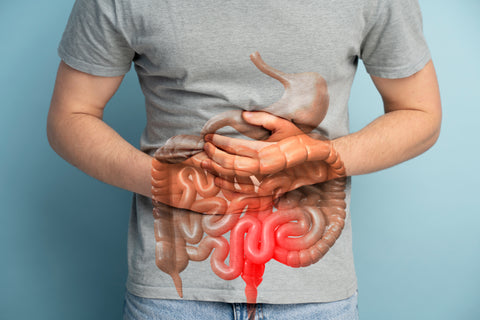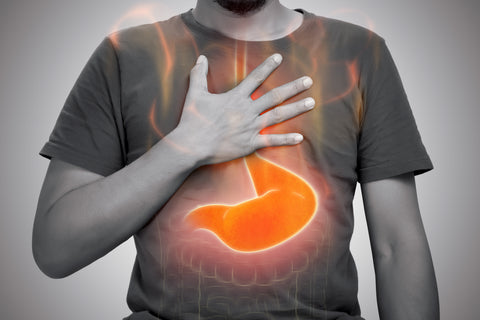Constipation is a health issue that affects your bowel movements, causing:
Difficulty in passing stool.
- Limited and infrequent bowel movements.
- No bowel movements for several days.
- Experiencing constipation at least three times a week.
- Fatigue.
- Fever.
- Unexplained and significant weight loss.
- Noticing blood in your stool.
Why Does Constipation Happen?
All parts of the digestive system work harmoniously to ensure nutrient absorption from food. However, this harmony can be disrupted due to several reasons, including:- Side effects of certain medications.
- Digestive system disorders.
- Lack of fiber in the diet.
How to Relieve Constipation?
You can overcome the problem of constipation and difficulty with bowel movements, which often occurs during fasting due to insufficient fluid intake and a focus on heavy, low-fiber meals. Therefore, the first piece of advice we offer to help alleviate constipation is to increase your focus on food varieties that can solve the problem, especially during Ramadan. The following provides clarification on this:-
Get fiber from various foods
-
Consult your pharmacist about your medications
-
Avoid delaying bowel movements
It is strongly advised to avoid withholding stool and delaying bowel movements for extended periods, especially when fasting.
-
Try laxatives
Laxatives, in their various forms, whether taken orally, as suppositories, or enemas, are a quick solution for constipation. Some of them include:
- Bulk-forming laxatives: such as Laxatives containing Psyllium, Methylcellulose, and wheat dextrin begin to work within 12 to 72 hours. They function by absorbing water to increase the size of the stool, which stimulates its elimination. Compared to their impact on improving bowel movements, these laxatives have minimal side effects like: Gas and bloating.
- Surfactant laxatives (softeners): Examples of these laxatives include sodium or calcium docusate. They take around 24 to 72 hours to have an effect and can be considered relatively safe.
- Osmotic laxatives: Certain types of laxatives work by drawing water into the colon, which helps facilitate stool elimination. Examples of these types of laxatives include Polyethylene glycol (macrogol), glycerin, and lactulose (Duphalac). The time it takes for these laxatives to take effect varies depending on their type. For instance, glycerin usually takes about half an hour to 3 hours to work. However, it's important to note that common side effects of these types of laxatives include bloating and gas.
- Stimulant laxatives: These laxatives stimulate the colon to increase its movement rate, making it faster and facilitating defecation. Examples include Bisacodyl and Senna. They take effect within a few hours and can irritate the digestive system, resulting in symptoms like burping and bloating.
- Suppositories and rectal injections: are usually safe and have a rapid onset of action. These include suppositories containing Bisacodyl or rectal injections (Enemas) containing saline solution or mineral oils.
It is important to consult a pharmacist to choose the most suitable laxative for your condition. The choice of laxative depends on your medical history, particularly if you have any chronic conditions, especially in the kidneys or heart, as well as the medications you are taking and their side effects. Additionally, the use of laxatives should not be continued for longer than 7 days.
Are Fiber Supplements Available at Pharmacies?
Yes, there are dietary supplements and natural laxatives available at pharmacies to combat constipation. These supplements contain special fibers, such as psyllium husk found in products like Fybogel, Fiberact and Agiolax.
Can Constipation Be Relieved within minutes?
Yes, constipation can be relieved quickly within minutes by using rectal suppositories like Bisacodyl, which starts working within half an hour.
How Is Constipation Treated in Children?
The treatment for constipation in children varies based on their age. For infants, gentle abdominal massage and warm baths can be helpful. On the other hand, older children can gradually add fiber-rich foods to their diet. In some instances, children may require laxatives suppositories under medical supervision.
















Comments (0)
There are no comments for this article. Be the first one to leave a message!